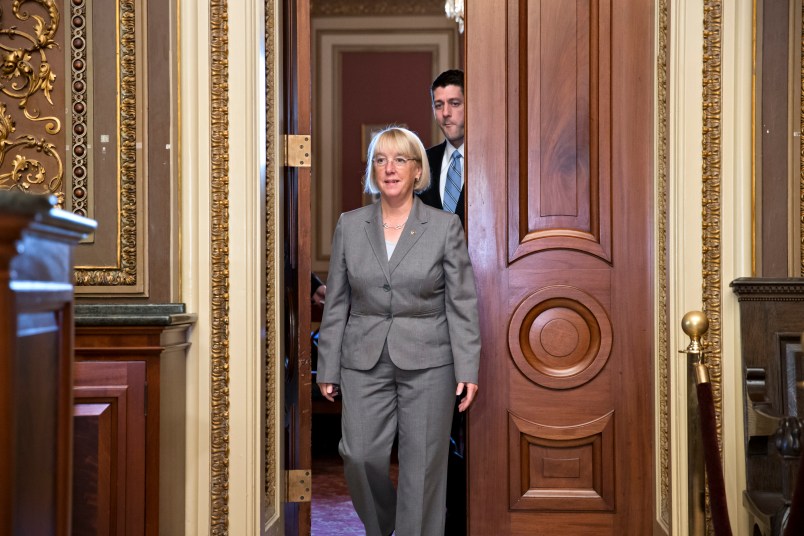Buried in the budget deal brokered by Rep. Paul Ryan (R-WI) and Sen. Patty Murray (D-WA) is a provision that dramatically reduces the maximum amount the federal government can pay most civilian and defense contractor employees on an annual basis.
The existing cap is flexible, based on a formula that accounts for the compensation of business executives. Earlier this month, the White House Office of Federal Procurement Policy raised the contractor pay cap from $763,029 to $952,308 for any employee in a given year.
The Ryan-Murray legislation, called the Bipartisan Budget Act, lowers that cap by almost half, to $487,000 — with “narrowly targeted exceptions” for scientists, engineers and other specialists who are validated by agency heads. It is to be adjusted annually based on the change in the cost of labor.
Here’s the relevant section of the bill:
SEC. 702. Limitation on allowable government contractor compensation costs.
(a) Limitation.—
(1) CIVILIAN CONTRACTS.—Section 4304(a)(16) of title 41, United States Code, is amended to read as follows:
“(16) Costs of compensation of contractor and subcontractor employees for a fiscal year, regardless of the contract funding source, to the extent that such compensation exceeds $487,000 per year, adjusted annually to reflect the change in the Employment Cost Index for all workers, as calculated by the Bureau of Labor Statistics, except that the head of an executive agency may establish one or more narrowly targeted exceptions for scientists, engineers, or other specialists upon a determination that such exceptions are needed to ensure that the executive agency has continued access to needed skills and capabilities.”.
(2) DEFENSE CONTRACTS.—Section 2324(e)(1)(P) of title 10, United States Code, is amended to read as follows:
“(P) Costs of compensation of contractor and subcontractor employees for a fiscal year, regardless of the contract funding source, to the extent that such compensation exceeds $487,000 per year, adjusted annually to reflect the change in the Employment Cost Index for all workers, as calculated by the Bureau of Labor Statistics, except that the head of an executive agency may establish one or more narrowly targeted exceptions for scientists, engineers, or other specialists upon a determination that such exceptions are needed to ensure that the executive agency has continued access to needed skills and capabilities.”
Opposition to the current pay cap for taxpayer-funded contractor employees is bipartisan. After the Dec. 4 announcement that the level would be raised, Sens. Chuck Grassley (R-IA), Barbara Boxer (D-CA), Joe Manchin (D-WV) and Jon Tester (D-MT) issued a joint statement saying they were “deeply troubled” by the new benchmark and called for a legislative fix.
The senators had sponsored legislation to reduce the cap to $230,700, which they observed was the same amount as the Vice President’s salary.







